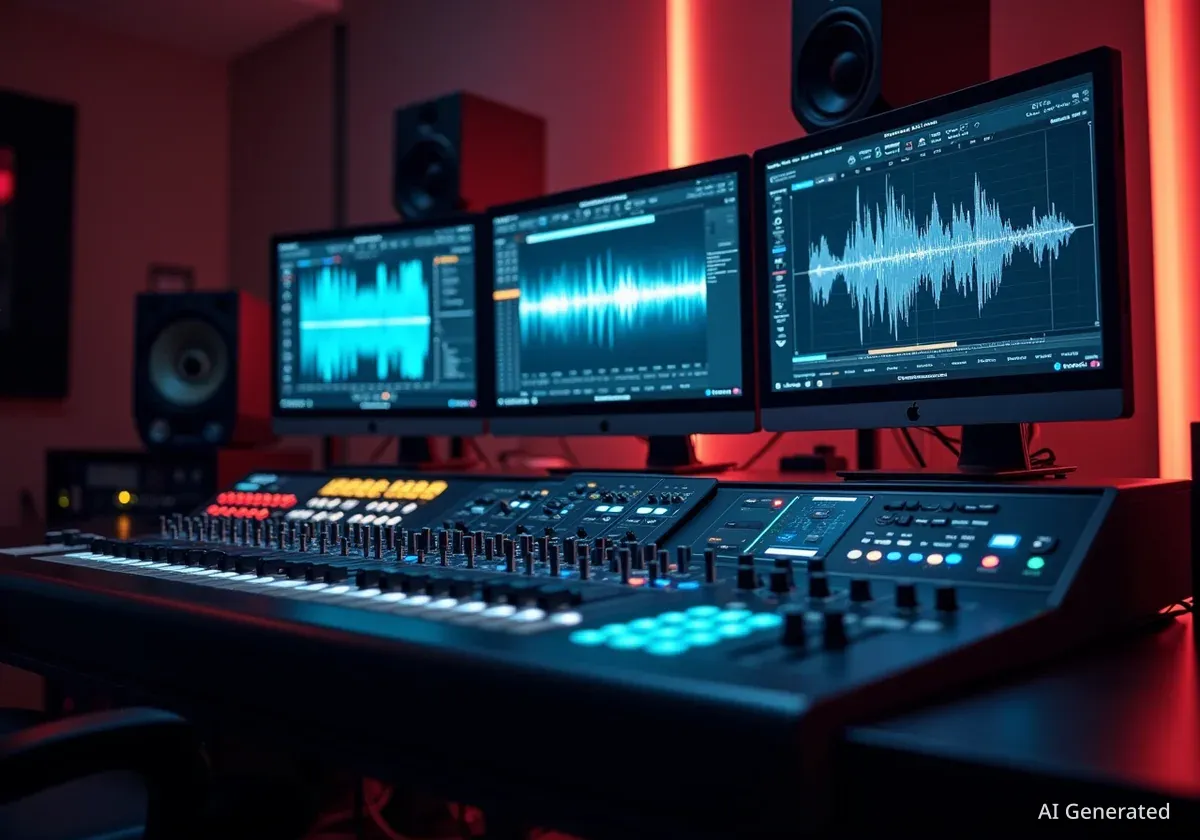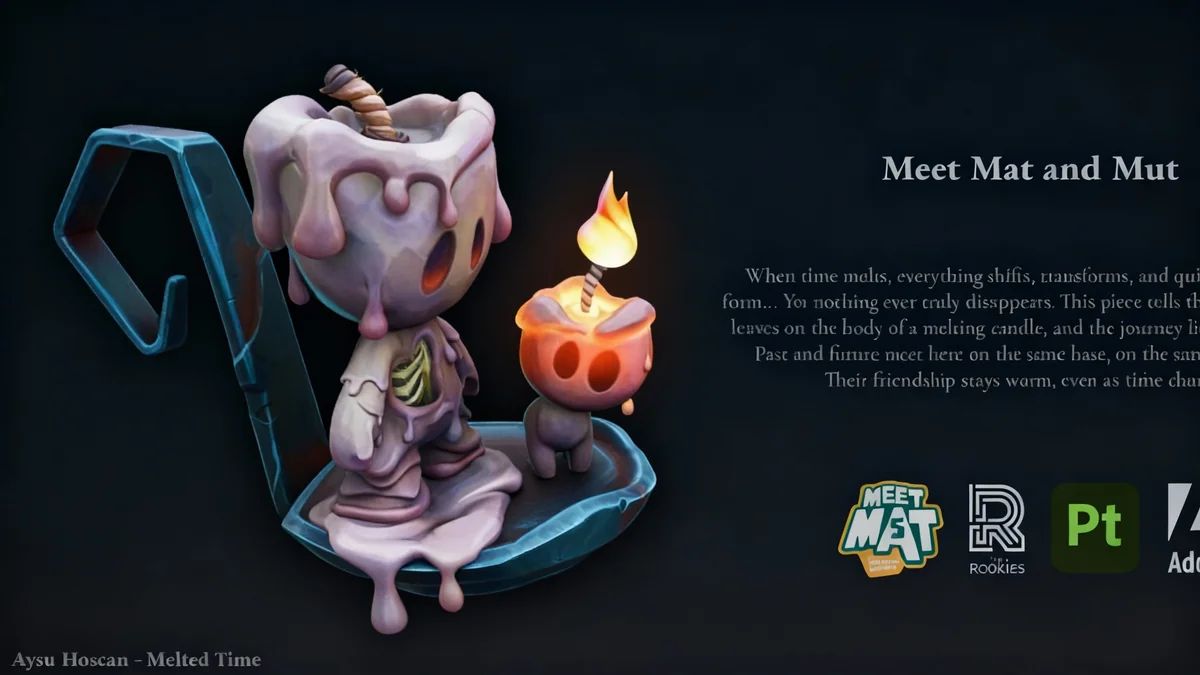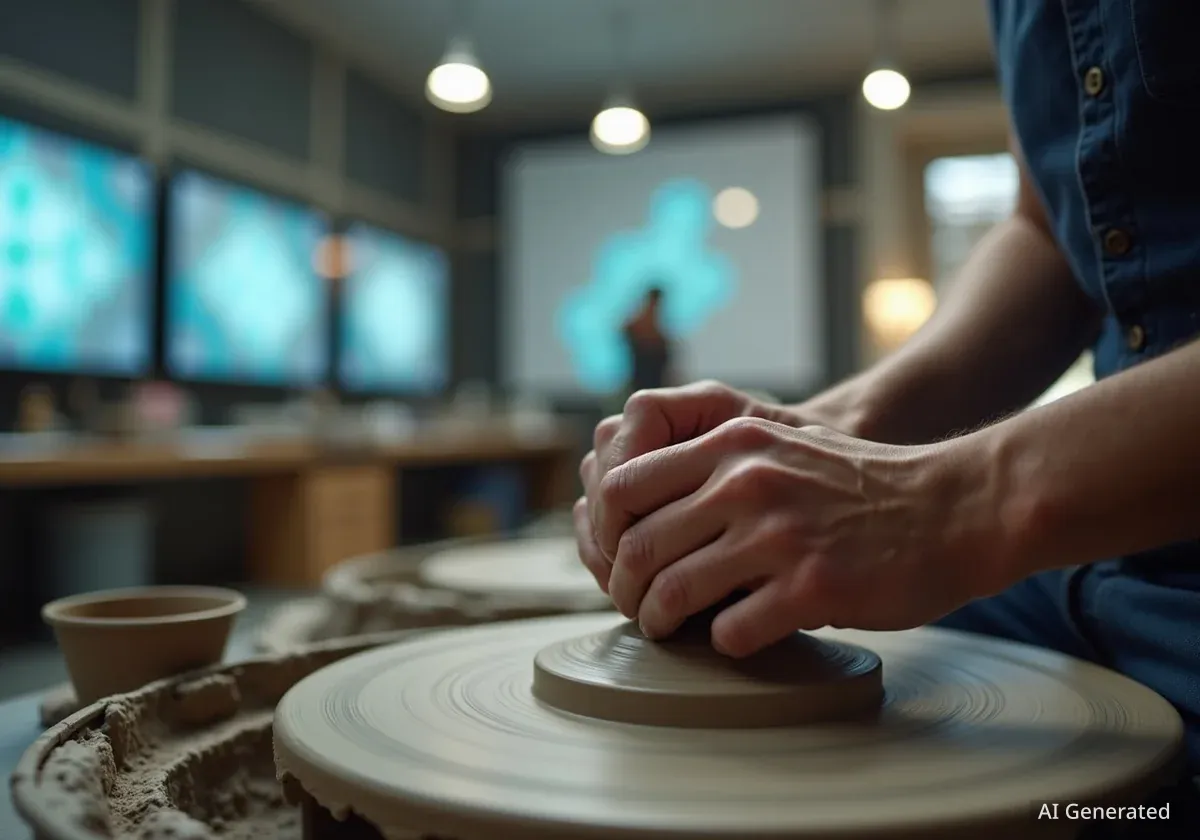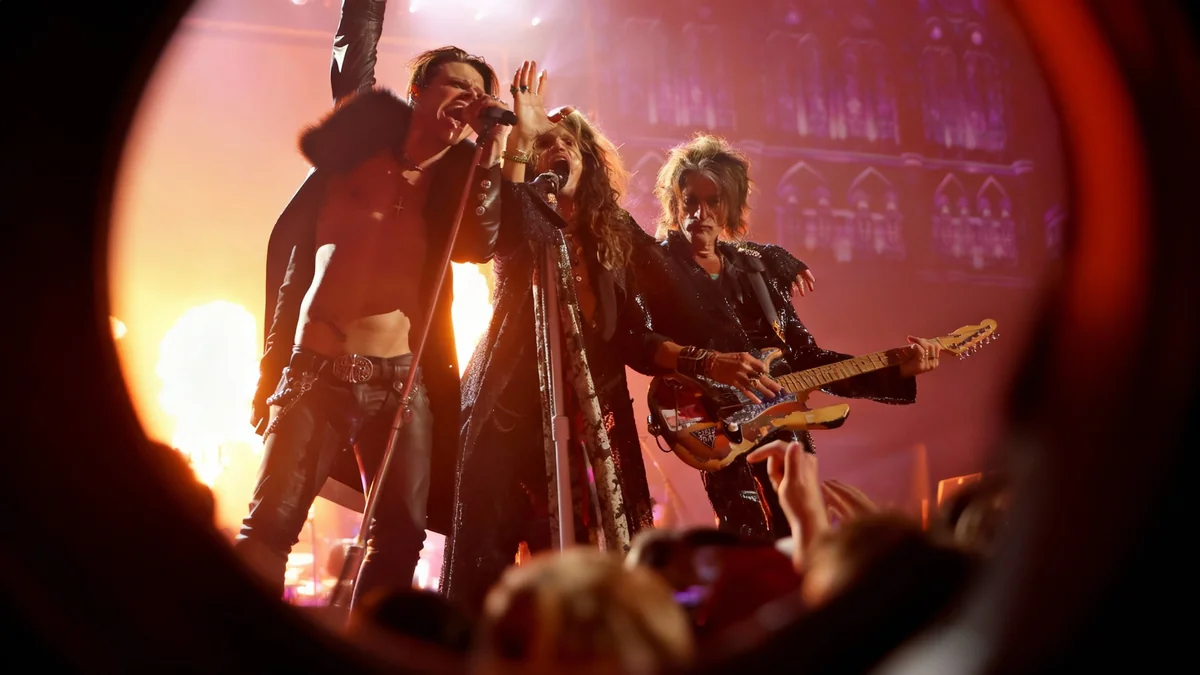A new era in music has arrived with the debut of Xania Monet, an artificial intelligence artist, on a Billboard radio chart. This marks a significant milestone, as Monet is recognized as the first known AI artist to achieve enough radio airplay to enter the prestigious music ranking system. The event signals a growing presence of AI-generated content within the mainstream entertainment industry.
Key Takeaways
- Xania Monet is the first AI artist to chart on Billboard.
- This debut reflects increasing AI integration in music.
- Radio airplay was crucial for Monet's chart entry.
The Rise of Artificial Intelligence in Music
The music industry is currently experiencing a profound transformation driven by artificial intelligence. AI tools are now capable of composing melodies, writing lyrics, and even generating entire songs. This technology is not just for niche experiments; it is now breaking into mainstream recognition.
Xania Monet's success demonstrates that AI-created music can resonate with audiences and gain traction on traditional platforms like radio. This integration raises important questions about creativity, authorship, and the future landscape of artistic production.
Fast Fact
AI algorithms can analyze vast datasets of existing music to learn patterns, styles, and structures. They then use this knowledge to create original compositions that often mimic human-created music.
Understanding Xania Monet's Billboard Debut
Xania Monet's entry onto a Billboard radio chart is a notable achievement. Billboard charts measure the popularity of songs and albums, often based on sales, streams, and radio airplay. For an AI artist to secure enough radio play to chart indicates significant industry acceptance and listener engagement.
The specific chart where Monet debuted has not been widely publicized, but any entry onto a Billboard chart is a recognized indicator of success in the music world. This event highlights the evolving criteria for what constitutes a 'successful' artist in the digital age.
Achieving radio airplay is often a challenging hurdle for new artists. It typically requires support from radio programmers and positive listener feedback. That an AI artist managed to clear this hurdle suggests a shifting perception of music creation.
The Impact on Human Artists and the Industry
The emergence of AI artists like Xania Monet presents both opportunities and challenges for human musicians. Some view AI as a powerful tool that can assist in the creative process, offering new sounds and production efficiencies. Others express concerns about job displacement and the devaluation of human artistry.
The debate around AI's role in creative fields is intensifying. Questions about intellectual property, royalties, and the definition of 'original' work are becoming more pressing. As AI technology advances, these discussions will only grow in importance.
"This debut signifies a paradigm shift in how we perceive music creation and consumption. It forces us to reconsider the boundaries of artistry and technology."
A Brief History of AI in Arts
Artificial intelligence has been used in creative fields for decades, from generating abstract art to assisting in film score composition. However, recent advancements in machine learning and neural networks have allowed AI to produce increasingly sophisticated and commercially viable artistic works.
Future Outlook for AI Music
The success of Xania Monet is likely just the beginning. Experts predict that AI will play an increasingly integral role in various aspects of the music industry. This could include personalized music experiences, automated sound engineering, and even dynamic, ever-changing soundtracks for media.
The technology could also democratize music creation, allowing individuals without formal training to produce high-quality tracks. This accessibility might lead to an explosion of new musical genres and styles.
However, ethical considerations remain paramount. Ensuring fair compensation for artists whose work informs AI models, establishing clear guidelines for AI-generated content, and maintaining transparency about its origins will be crucial for the sustainable growth of this sector.
Challenges and Opportunities
- Intellectual Property: Determining ownership of AI-generated music remains a complex legal challenge.
- Authenticity: Audiences may question the emotional depth or authenticity of music created by algorithms.
- Collaboration: AI could serve as a powerful collaborative partner for human artists, expanding creative possibilities.
- Personalization: AI can create highly personalized music experiences tailored to individual listener preferences.
The music industry is at a crossroads. The integration of AI, as demonstrated by Xania Monet's Billboard debut, forces a reevaluation of traditional practices and opens doors to unprecedented creative and commercial avenues. The next few years will undoubtedly shape the long-term impact of artificial intelligence on how music is made, distributed, and enjoyed globally.




